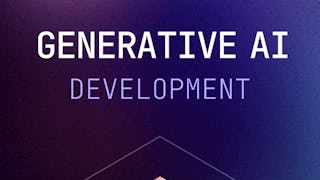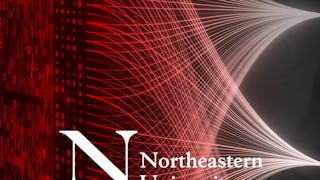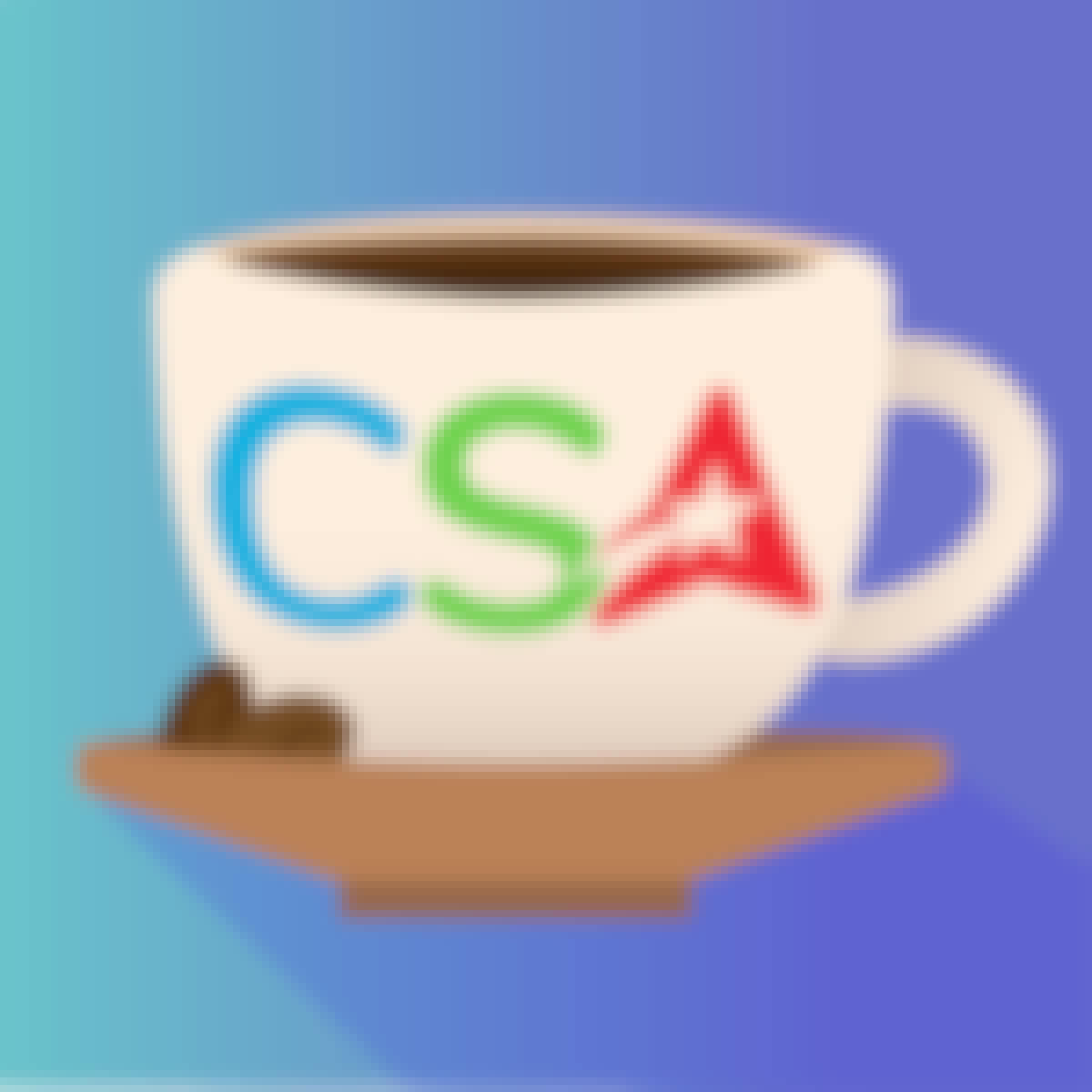Pseudocode
Results for "pseudocode"
 Status: Free TrialFree TrialD
Status: Free TrialFree TrialDDuke University
Skills you'll gain: Debugging, Software Testing, Program Development, Pseudocode, Simulations, Computer Programming, Algorithms, Development Environment, C (Programming Language), Command-Line Interface
4.3·Rating, 4.3 out of 5 stars818 reviewsBeginner · Course · 1 - 4 Weeks
 Status: Free TrialFree Trial
Status: Free TrialFree TrialSkills you'll gain: Prompt Engineering, Anthropic Claude, LLM Application, Debugging, ChatGPT, Generative AI, Multimodal Prompts, Cloud API, Pseudocode, Integrated Development Environments, Artificial Intelligence, Software Development Tools, Responsible AI, Software Installation, Code Review, Application Programming Interface (API), System Configuration, Web Development Tools, Software Development, Program Development
4.5·Rating, 4.5 out of 5 stars142 reviewsIntermediate · Specialization · 1 - 3 Months
 Status: NewNewStatus: PreviewPreviewN
Status: NewNewStatus: PreviewPreviewNNortheastern University
Skills you'll gain: Algorithms, Graph Theory, Computational Thinking, Programming Principles, Pseudocode, Theoretical Computer Science, Data Structures, Computer Programming, Performance Tuning
Mixed · Course · 1 - 3 Months
 E
EEIT Digital
Skills you'll gain: Geometry, Algorithms, Computer Graphics, Data Structures, Graph Theory, Spatial Data Analysis, Computational Thinking, Geographic Information Systems, Pseudocode, Theoretical Computer Science, Spatial Analysis
4.4·Rating, 4.4 out of 5 stars24 reviewsIntermediate · Course · 1 - 4 Weeks
 Status: PreviewPreview
Status: PreviewPreviewSkills you'll gain: Algorithms, Technical Communication, Pseudocode, Computational Thinking, Solution Design, Programming Principles, Software Design, Theoretical Computer Science, Data Structures, Mathematical Modeling, Applied Mathematics, Computer Science
4.4·Rating, 4.4 out of 5 stars24 reviewsBeginner · Course · 1 - 4 Weeks
 Status: PreviewPreviewU
Status: PreviewPreviewUUniversity of Pennsylvania
Skills you'll gain: Computational Thinking, Algorithms, Pseudocode, Problem Solving, Analytical Skills, Computer Science, Python Programming, Computer Systems, Data Structures, Computer Hardware, Computer Programming, Debugging
4.7·Rating, 4.7 out of 5 stars1.4K reviewsBeginner · Course · 1 - 4 Weeks
 Status: Free TrialFree Trial
Status: Free TrialFree TrialSkills you'll gain: Pseudocode, Computational Thinking, Debugging, Algorithms, Front-End Web Development, Javascript, Computer Programming, Data Structures, JSON, Web Development, Object Oriented Programming (OOP)
4.6·Rating, 4.6 out of 5 stars36 reviewsIntermediate · Course · 1 - 4 Weeks
 Status: Free TrialFree TrialU
Status: Free TrialFree TrialUUniversity of California San Diego
Skills you'll gain: Java, Computer Programming, Object Oriented Programming (OOP), Test Case, Pseudocode, Debugging, Algorithms, Program Development, Data Structures
Beginner · Course · 1 - 3 Months
 Status: Free TrialFree TrialU
Status: Free TrialFree TrialUUniversity of London
Skills you'll gain: Pseudocode, C++ (Programming Language), Integrated Development Environments, Object Oriented Programming (OOP), Algorithms, Debugging, Programming Principles, Data Validation, Data Structures, File Management
Build toward a degree
4.7·Rating, 4.7 out of 5 stars33 reviewsIntermediate · Course · 1 - 4 Weeks
 Status: Free TrialFree TrialM
Status: Free TrialFree TrialMMicrosoft
Skills you'll gain: Microsoft Copilot, Programming Principles, Full-Stack Web Development, GitHub, Version Control, Program Development, Debugging, Computational Thinking, Pseudocode, Git (Version Control System), Web Design and Development, Computer Programming, Algorithms, Web Development, C# (Programming Language), Data Structures, Back-End Web Development
4.8·Rating, 4.8 out of 5 stars148 reviewsBeginner · Course · 1 - 3 Months
 Status: Free TrialFree TrialM
Status: Free TrialFree TrialMMicrosoft
Skills you'll gain: Front-End Web Development, Debugging, Programming Principles, Computational Thinking, GitHub, Pseudocode, Version Control, Git (Version Control System), Integrated Development Environments, Microsoft Copilot, Algorithms, Program Development, Computer Programming, Web Development, C# (Programming Language), Software Engineering, Data Structures
4.8·Rating, 4.8 out of 5 stars45 reviewsBeginner · Course · 1 - 3 Months
 Status: PreviewPreviewI
Status: PreviewPreviewIIllinois Tech
Skills you'll gain: Unified Modeling Language, Debugging, Object Oriented Programming (OOP), Python Programming, Computer Programming, System Programming, Pseudocode, Program Development, Scripting Languages, Software Design, Data Structures, UI Components, File Management
Build toward a degree
4.7·Rating, 4.7 out of 5 stars21 reviewsBeginner · Course · 1 - 3 Months